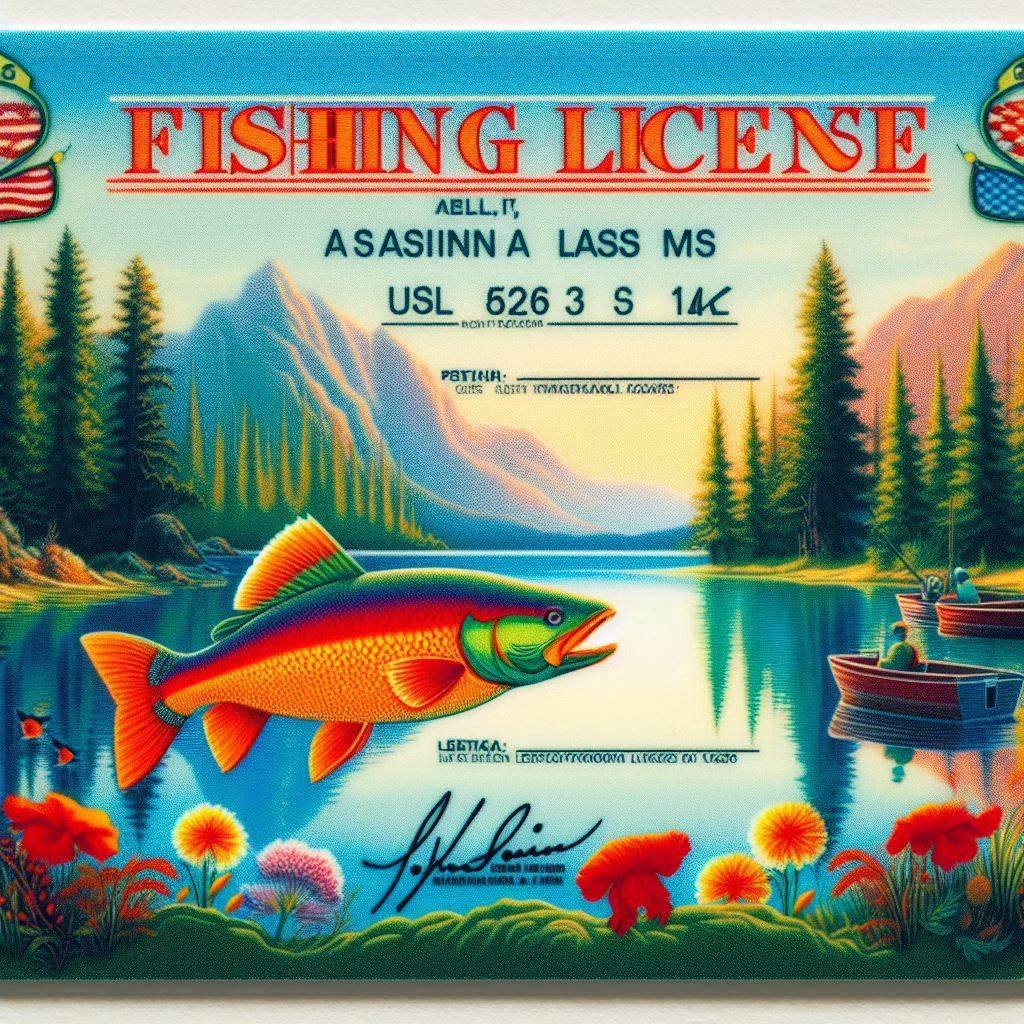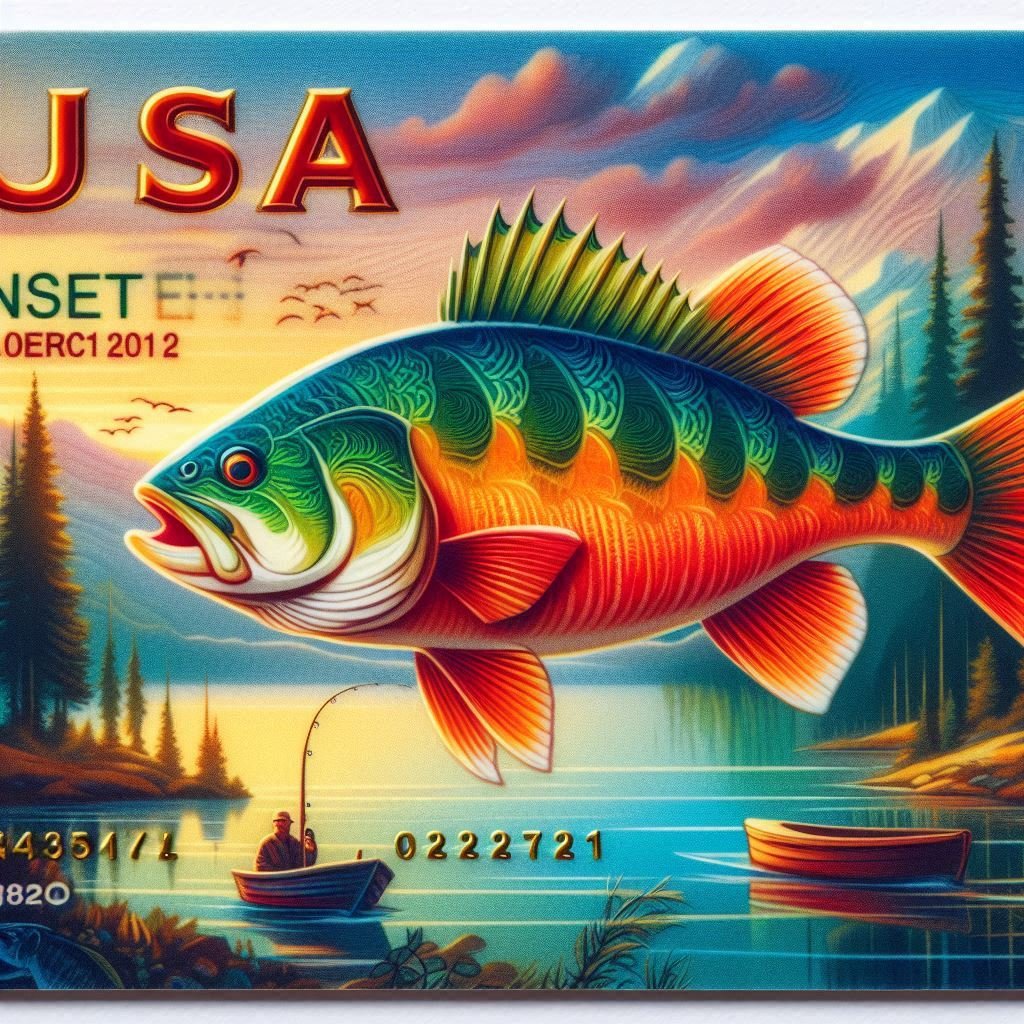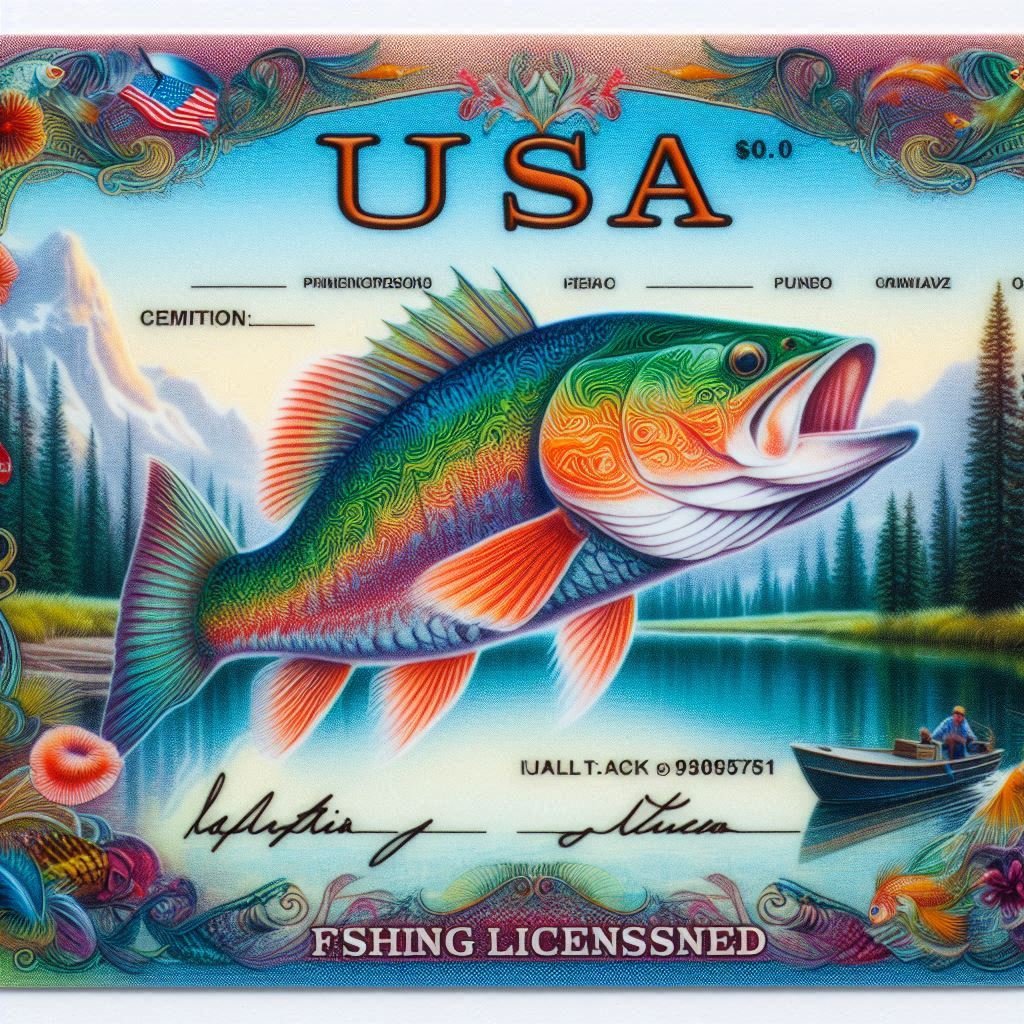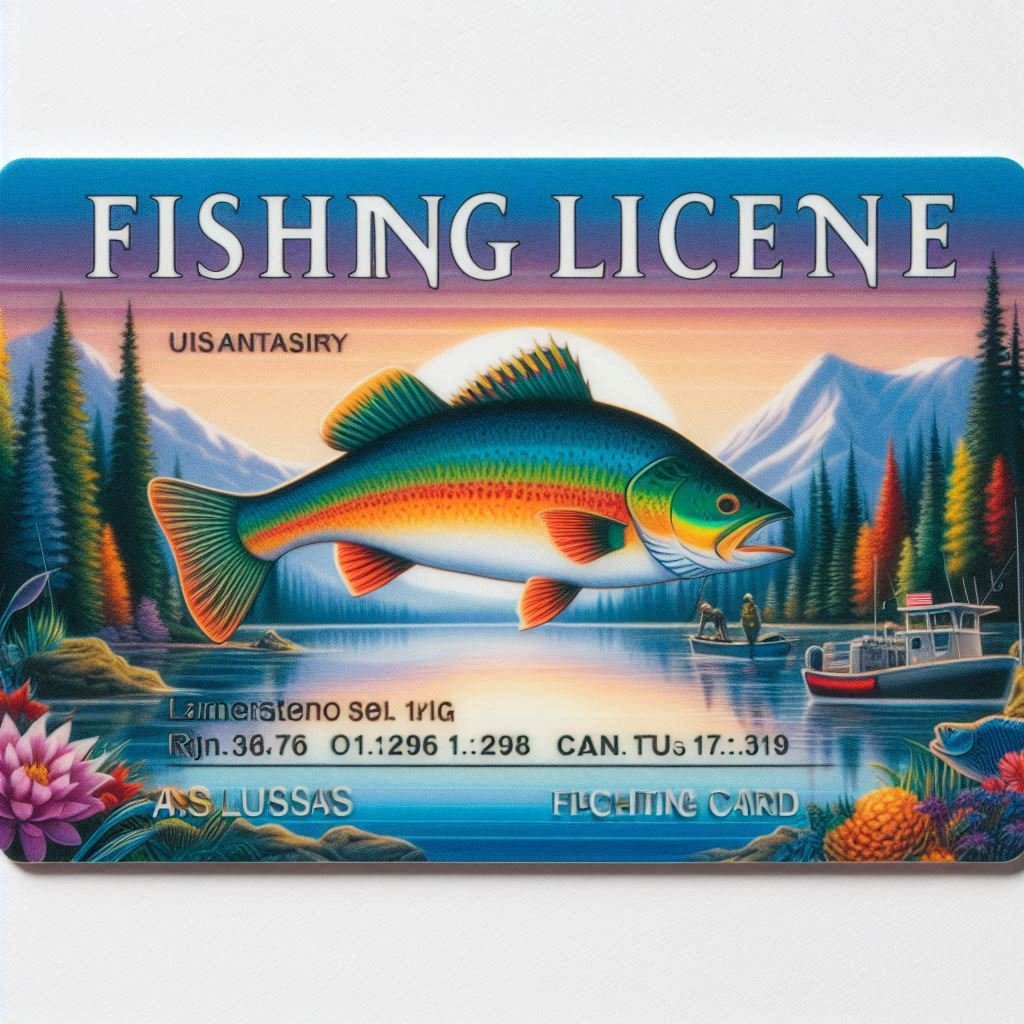Fishing in Alabama is a popular activity, and to enjoy it legally, you’ll need a fishing license. The Alabama fishing license is necessary for both residents and visitors looking to cast their lines in the state’s waters. Whether you’re fishing in freshwater or saltwater, obtaining the right license will ensure you’re following local regulations while also enjoying the state’s diverse fishing opportunities.
In this guide, we’ll break down the different types of Alabama fishing licenses, the associated costs, equipment requirements, technology available, and how to use and maintain your fishing license. Plus, we’ll talk about the benefits of having a valid license and recommend some popular brands for fishing gear.
Types of Alabama Fishing Licenses

Alabama offers several types of fishing licenses, each catering to different needs, whether you’re a local, a visitor, or interested in saltwater fishing. The primary license types include:
1. Resident Fishing License
The most common fishing license for people living in Alabama. As a resident, you’ll be eligible for a discount compared to non-residents. A typical license is valid for one year, starting from the date of purchase.
2. Non-Resident Fishing License
Visitors who plan to fish in Alabama must apply for a non-resident license. This license is often valid for shorter periods, including 1-day, 3-day, or 7-day passes. Non-residents are subject to different fees, so it’s essential to select the right option.
3. Alabama Saltwater Fishing License
If you plan to fish in the coastal waters of Alabama, you’ll need a saltwater fishing license. This is separate from a freshwater license and is required for anyone fishing in saltwater regions, such as the Gulf Coast. Whether you’re fishing from a boat or the shore, this license applies.
4. Alabama Visitor Fishing License
For visitors who aren’t residents of Alabama, the visitor fishing license provides temporary access to Alabama’s fishing waters. It’s often designed to be more affordable and flexible, with options like the 1-day or 7-day license. This is ideal for tourists looking to fish during their stay.
5. Additional Permits
Depending on where you’re fishing, you may need additional permits. For example, fishing in some protected areas or using specific fishing methods may require special permits.
Prices of Alabama Fishing Licenses
The cost of an Alabama fishing license varies based on your residency, the type of fishing you’ll be doing, and the duration of the license. Below is a general overview of the typical pricing:
- Resident Fishing License: $18 annually.
- Non-Resident Fishing License: Prices start at $55 for a one-year license.
- Alabama Saltwater Fishing License: $30 annually for residents, and $50 for non-residents.
- Visitor Fishing License: Typically ranges from $10 for a 1-day pass to $30 for a 7-day pass.
These prices may vary, and special rates might apply for seniors, veterans, or disabled persons.
Fishing Equipment Needed for Alabama Fishing

To fish legally in Alabama, you’ll need more than just a license. There’s a range of equipment that makes the fishing experience smoother and more successful. The essential gear includes:
1. Fishing Rod and Reel
A good-quality rod and reel are fundamental. Rods come in various lengths and materials, but a 6 to 7-foot medium-action rod is often ideal for most types of fishing in Alabama.
2. Fishing Line
Choosing the right fishing line depends on the type of fish you’re targeting. Generally, a 6-12 pound test line is suitable for freshwater fishing, while heavier lines (15-30 pounds) are recommended for saltwater fishing.
3. Hooks and Baits
Hooks vary by size, and you should choose based on the fish species you’re targeting. Additionally, live or artificial baits, such as worms, shrimp, or lures, are essential for attracting fish.
4. Tackle Box
A tackle box keeps your fishing tools organized. It should contain hooks, bobbers, weights, and other accessories.
5. Fishing Net
A net is helpful when you’ve reeled in a fish and need to land it safely.
6. Fishing License Display
While you don’t need any physical display device for the fishing license itself, some regions require a catch record or tag to accompany certain species.
Technology in Alabama Fishing Licenses
Gone are the days of needing to carry a paper fishing license. Modern technology now offers multiple ways to access your Alabama fishing license:
1. Online Licensing System
Alabama’s Department of Conservation and Natural Resources (DCNR) offers a user-friendly online portal where you can apply for and renew your fishing license. You can access the site from any device and download your license directly.
2. Mobile App
The Outdoor Alabama App allows you to view fishing regulations, check license status, and access maps of fishing spots. It’s a convenient way to keep all your fishing-related information in one place.
3. Digital License
Instead of carrying a physical card, many anglers now choose to use a digital version of their license. This can be accessed through the DCNR website or app and often doesn’t require a printout.
4. Fishing Regulations Updates
Technology also makes it easier to stay up-to-date with fishing regulations in Alabama. Changes to bag limits, seasons, and restricted areas are posted online and through the app, ensuring you remain compliant.
Benefits of Having an Alabama Fishing License
Owning an Alabama fishing license isn’t just about being legal – there are several benefits:
1. Conservation of Fish Populations
Your fishing license helps fund conservation efforts across the state. These funds go toward habitat preservation, fish stocking programs, and other conservation initiatives.
2. Access to Prime Fishing Locations
Having a valid fishing license grants you access to public fishing spots, including lakes, rivers, and coastal areas.
3. Supporting Local Economy
Fishing is a major part of Alabama’s tourism and economy. By obtaining a fishing license, you’re supporting local businesses, from bait shops to guided tours.
4. Avoiding Fines
Fishing without a license can result in hefty fines and the confiscation of fishing gear. A fishing license ensures you avoid these penalties.
How to Use Your Alabama Fishing License

Using your fishing license in Alabama is simple once you understand a few key points:
- Display Your License: Whether it’s digital or physical, keep your license with you while fishing. Some areas may require you to show it upon request.
- Follow Fishing Regulations: Ensure you follow all local fishing regulations, including bag limits, fishing seasons, and restricted areas. Check the Outdoor Alabama App or website for the latest updates.
- Special Areas: If fishing in saltwater, make sure you’re aware of any special regulations or permits required for certain zones.
Maintaining Your Alabama Fishing License
Fishing licenses must be renewed annually. The DCNR sends out reminders, but it’s up to you to keep track of the expiration date. If you’re unsure of your renewal status, you can check it online or through the Outdoor Alabama App.
Popular Fishing Gear Brands for Alabama
When it comes to buying fishing equipment in Alabama, there are a few top brands that anglers trust:
- Shimano Renowned for their durable rods and reels, Shimano products are ideal for both freshwater and saltwater fishing.
- Daiwa Daiwa is another excellent brand offering high-quality reels and rods that are perfect for catching both big and small fish.
- Abu Garcia Known for their innovative designs, Abu Garcia provides anglers with rods and reels that offer excellent performance in diverse fishing conditions.
- Rapala Rapala is a trusted name when it comes to lures, providing high-quality options for both freshwater and saltwater anglers.

